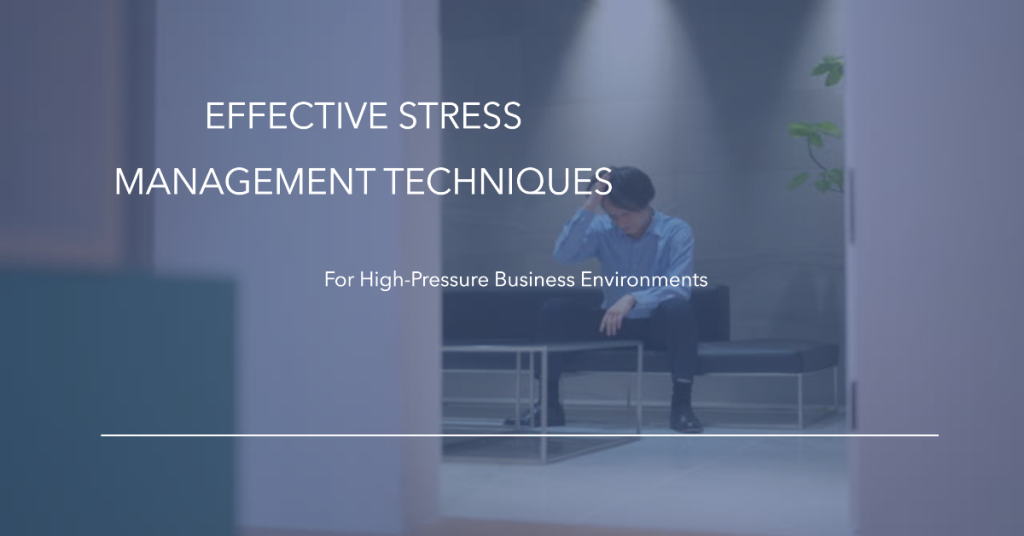In today’s fast-paced business world, the ability to manage stress effectively is not just a skill—it’s a necessity. High-pressure environments can take a toll on even the most seasoned professionals, leading to burnout, decreased productivity, and health issues. However, by employing strategic stress management techniques, individuals can navigate these challenges more successfully. This article explores five key strategies for managing stress in high-pressure business environments, incorporating insights from industry experts.
Identify Stress Triggers
Understanding what triggers your stress is the first step toward managing it. In high-pressure environments, triggers might include tight deadlines, high stakes meetings, or managing a team’s expectations. By identifying these triggers, you can anticipate stressors and prepare strategies to address them before they escalate.
Jessica Shee from iBoysoft comments, “Recognizing the early signs of stress has been pivotal in our team’s ability to stay ahead of deadlines without compromising on quality. It’s about being proactive rather than reactive.”
Develop a Strong Support Network
Having a strong support network is crucial in high-pressure environments. This network can include colleagues, mentors, or even professional coaches who understand the challenges you’re facing. Sharing your experiences and seeking advice can provide new perspectives and strategies to manage stress more effectively.
Sai Blackbyrn, CEO of Coach Foundation, notes, “The power of a supportive community cannot be overstated. It’s not just about having people to lean on, but also about learning from each other’s experiences and strategies for coping with stress.”
Implement Time Management Techniques
Effective time management is key to reducing stress in high-pressure situations. Prioritizing tasks, setting realistic deadlines, and avoiding procrastination can help manage workload more efficiently. Utilizing tools and technologies for scheduling and task management can also streamline processes and reduce the feeling of being overwhelmed.
Natalia Dávila Merlo, Content Marketing Manager at Ling, shares, “Adopting time management apps has revolutionized the way our team handles projects. It’s not just about managing time but also about maximizing productivity within the available hours.”
Practice Mindfulness and Relaxation Techniques
Incorporating mindfulness and relaxation techniques into your daily routine can significantly reduce stress levels. Practices such as meditation, deep breathing exercises, and yoga can help calm the mind and improve focus. Even short breaks throughout the day to practice these techniques can make a substantial difference.
Tiffany Payne, Head of Content at PharmacyOnline.co.uk, emphasizes, “Integrating mindfulness into our daily routine has not only reduced stress but also enhanced our team’s overall well-being and productivity.”
Stay Physically Active
Physical activity is a powerful stress reliever. Regular exercise, whether it’s a brisk walk, a gym session, or a team sport, can help clear your mind and reduce the physical symptoms of stress. Making time for exercise can be challenging in a busy schedule, but its benefits on mental and physical health are undeniable.
Dean Lee, Head of Marketing at Sealions, remarks, “Encouraging our team to engage in physical activities has been a game-changer. It’s not just about staying fit but also about creating an outlet for stress.”
Conclusion
Managing stress in high-pressure business environments requires a multifaceted approach. By identifying stress triggers, building a supportive network, mastering time management, practicing mindfulness, and staying active, professionals can navigate the challenges of their roles more effectively. These strategies not only improve individual well-being but also contribute to a more productive and positive workplace culture.
Pareen Sehat, Clinic Director of Wellbeings Counselling, concludes, “Adopting comprehensive stress management techniques is essential for sustaining performance and health in today’s business world. It’s about finding what works for you and making it a part of your daily routine.”

